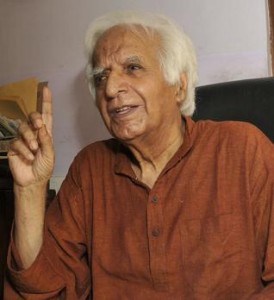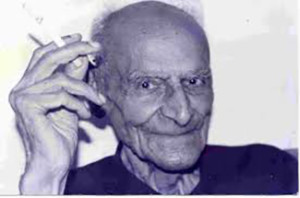کینیڈا میں مقیم ممتاز صحافی، اور مزاح نگار محترم مرزا یٰسین بیگ صاحب نے فیس بک پر فرشتوں کے وجود، عدم وجود اور وجہہِ وجود پر ایک سوال اٹھا یا ہے۔ ایہلِ دانش کے نزدیک کوئی بھی سوال غیر ایم نہیں ہوتا۔ میں نے ان کی محفل میں شرکت کی دعوت پر مندرجہ ذیل تحریر پیش کی ہے۔
فرشتوں کے وجود یا عدم وجود کی مباحث مغرب میں کم از کم دو سو سال سے جاری ہیں۔
اس ساری بحث کو مغرب کی سو اہم کتابوں کے مجموعہ کی ادارتی جلد کے پہلے ہی باب میں، فرشتے، کے عنوان سے زیرِ بحث لایا گیا ہے۔ ایک طویل اقتباس تناظر کے لیئے پیش ہے۔
احباب اس پر غور کر سکتے ہیں۔ میں اس اقتباس کے اختتام پر اس کے تیسرے پیرا گراف کا ترجمہ پیش کرکے بات کو مختصرا آگے بڑھانے کی کوشش کروں گا۔
“The word “angelic” usually has the connotation of perfect moral goodness, but that must not lead us to forget that demons are angelic in their nature although of a diabolical or evil will. Nor should the fact of Satan’s subservience to God cause us to forget that the Christian theology tries not to underestimate the power of the devil in his going and comings to the earth. Satan tried to tempt even Christ, and throughout the New Testament the destruction of diabolic influence over men occupies a prominent place. The intervention of the devil in man’s life provides, if not the theme, the background of Goethe’s Faust.
As the theory of demonic influence and diabolic possession is an integral part of the traditional doctrine of angels, so, in modern times demonology has been a major focus of attack upon theological teaching concerning spirits. Moralists have thought it possible to explain human depravity without recourse to the seductions of the devil, and psychiatrists have thought it possible for men to go mad or to behave as if bewitched without the help of evil spirits. The idea of Devil according to Freud, is a religious fiction….”The best way out in acquittal of God” for those who try “to reconcile the undeniable existence … of evil with his omnipotence and supreme goodness”.
The characteristic skepticism of our age has been directed against the belief in angels generally. It casts doubt by satire or denies by argument the existence of spirits both good and evil. Yet, all arguments considered, it may be wondered whether the existence of angels… or in philosophical terms the existence of pure intelligences — is or is not a genuine issue. Or are these two issues here, one philosophical and the other theological, one to be resolved, or left unresolved on the level of argument, the other to be answered dogmatically by the declarations of a religious faith?”
اثرِ حاضر عقائد کے خلاف شک یا تو ہجویانہ بیانات کے ذریعہ اٹھایا جاتا ہے، یا ان کے انکار کو مدلل مباحث میں اچھی یا بری ارواح کے وجود کے رد کے ذریعہ کیا جاتا ہے۔ لیکن تمام مباحث کے بعد یہ تعجب بھی کیا جا سکتا ہے کہ فرشتوں کا وجود ، یا فلسفیانہ اصطلاح میں مصفا فہم کو وجود، قابلِ توجہہ حقیقی مسائل ہیں کہ نہیں کی
ا ختصاصی تشکیک کو عام طور پر فرشتوں وغیرہ پر مبنی عقائد کے خلاف استعمال کیا گیا ہے۔ ان؟
کیا یہ مممکن ہے کہ یہ دو الگ مسائل ہیں۔ ایک فلسفیانہ اور دوسرا مذہبی۔ فلسفیانہ طور ہر اس مسئلہ کو بحث کے ذریعہ حل کرنے کی کوشش کی جا سکتی ہے اور اسے بغیر حل چھوڑا جا سکتا ہے۔ یا پھر مذہبی سطح پر اس کا جواب کٹر مذہبی عقیدہ پر مبنی ایمان پر چھوڑا جاسکتا ہے؟
ابراہیمی مذاہب میں یہ عقائد اسلام سے بھی ہزاروں سال پہلے سے موجود ہیں۔ اور ان کے خلاف تشکیک کا سللسہ ہر مذہب کے اہم ادیب اور شاعر نے جاری رکھا ہے۔ جبھی تو غالب نے کہا تھا کہ،
ہم کو معلوم ہے جنت کی حقیقت لیکن
دل کے بہلانے کو غالب یہ خیال اچھا ہے
یا یہ کہ،
نہ تھا کچھ تو خدا تھا ، کچھ نہ ہوتا تو خدا ہوتا
ڈبویا مجھ کو ہونے نے، نہ ہوتا میں تو کیا ہوتا
اگر ہم غور کریں تو شاید اندازہ ہو کہ ایک طرف تو مذہبی عقائد، جن میں خدا ، فرشتوں ، اور غیر مرئی اور غیر محسوس تخلیقات کے وجود کے مفروضات پر مبنی ہیں، دوسری جانب سارے کے سارے سائنسی علوم بھی ان نظریات اور مفروضات پر مبنی ہیں جن میں سے ہر ایک کو ثابت نہیں کیا جا سکا ہے۔
سائنس واالوں نے ان مفروضوں کے تلے اپنے لیئے راستہ یہ نکالا ہے کہ وہ ثبوت کے غلط ثابت ہونے پر عارضی طور پر معذرت کرکے نئے ثبوت ڈھونڈنے نکل پڑتے ہیں۔
میں بذاتِ خود اس غیر حتمی نتیجہ پر پہنچا ہے کہ ساری کائنات مفروضات پر قائم ہے اور کیا ہے اور کیا نہیں ہے کی خبر کسی کو بھی مکمل طور پر معلوم نہیں ہے، جیسے غالب ہی نے کہا تھا کہ،
ہاں،کھایئو مت فریبِ ہستی
ہر چند کہیں کہ ہے، نہیں ہے
مفروضوں پر مبنی کائنات کی ایک ادنیٰ سسی مثال یہ ہے کہ، ہم اور آپ نو سیاروں پر مبنی نظامِ شمسی پر سالوں سے عقیدہ کیئے بیٹھے تھے
۔ لیکن مشاہدوں کےجدید آلات نے ہمیں ان نو سیاروں کی صف سے پلوٹو کو نکالنے پر مجبور کیا، اور اب اس کی جگہ ابھی چند ہی روز پہلے ایک نویں سیارے کو ڈھونڈا گیا ہے جسے ابھی تک کوئی دوربین تلاش نہیں کر سکی ہے۔
اس کو دریافت کرنے والے ماہرینِ اجرام ِ فلکی نے اقرار کیا ہے کہ ان کی یہ دریافت صرف ریاضی کی مساواتوں میں موجود ہے ایک قوی امکان کے ساتھ لیکن اس نویں سیارے کے وجود کو مادی طور پر ثابت نہیں کیا جا سکتا ہے۔
سو چاہے معاملہ فرشتوں کا ہو، خدا کا ہو، یا کائنات اور اجرامِ فلکی کا، جب تک دنیا قائم ہے ، ہونے اور نہ ہونے کی مباحث جاری رہیں گی۔ صاحبانِ ایمان و عقائد اپنے راسخ ایمان کی بنیاد پر خدا اور غیر مرئی تخلیقات کے وجود کو مانتے رہیں گے۔ اور دوسری جانب حاملانِ اذہان و علوم اپنے مشاہدے، نظریہ ، اور مفروضہ ، اور عارضی ثبوتوں کی بنیاد پر تسخیرِ کائنات کے لیئےکوشاں رہیں گے۔
شاہد یہی وجہہ تھی کے عصرِحاضر کے نابغئہ روزگار نظریاتی سایئنسداں اسٹیفن ہاکنگ نے کہا ہے کہ، جس دن دنیا کے سارے سائنسداں، فلسفی، مذہبی علما، اور سیاستداں بیک زباں عام فہم زبان میں انسان کو سمجھا سکیں گے کہ کائنات کیسی بنی تھی، کب بنی تھی، اور کیوں بنی تھی، اس روز ہم شاید خدا کے ذہن کو تسخیر کر سکیں گے۔
میں منیر حقیر پر تقصیر بھی یہی سمجھ پایا ہوں کہ فرشتوں کے ہونے ، نہ ہونے، اور کیوں ہونے کا جواب بھی اسٹیفن ہاکنگ کے جواب میں پوشیدہ ہے ، جو شاید ایک لا متناہی مدت تک ثابت نہ ہو پائے گا۔
آخر میں ایک بار پھر غالب ہی سے استفادہ کرتے ہوئے ، اور محفل میں شریک کرنے پر آپ کا شکریہ ادا کرتے ہوئے اجازت طلب کرتا ہوں۔
ہستی ہے ، نہ کچھ عدم ہے، غالب۔۔ آخر تو کیا ہے اے نہیں ہے۔۔۔۔
Like this:
Like Loading...


